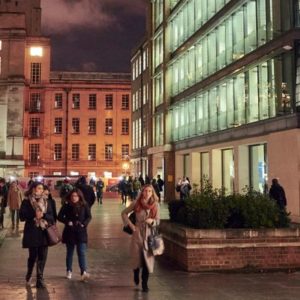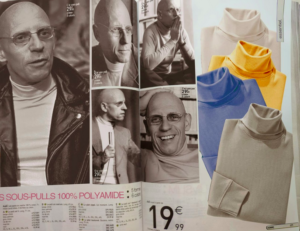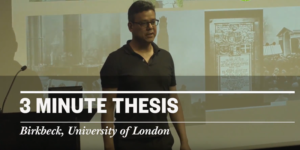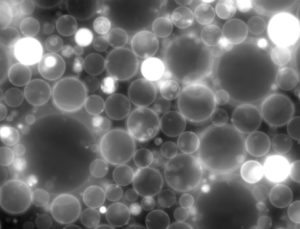2018 Postgraduate Research Experience Survey (PRES) at Birkbeck
Your chance to provide feedback
All current Birkbeck research students have been sent a personal invitation to take part in PRES 2018. The survey will close on 30 April 2018. Birkbeck is now participating in the PRES on an annual basis and the latest survey opened on 8 February 2018. Further information about the PRES survey at Birkbeck is available on the Birkbeck surveys page.
We are grateful to all who take time to submit a response. The PRES is an important way for the BGRS and for Birkbeck to understand the views of postgraduate researchers in order to address issues of importance and so that we can continue to do what you value.
£100 Amazon Voucher Prizes
If you submit a response to PRES 2018 you will have a chance to win £100 in Amazon vouchers.
How your responses to the PRES are being used
In the 2017 PRES survey we received 331 responses which was a significant increase on the response rate for 2015 PRES where we received 227 responses. The Birkbeck Graduate Research School (BGRS) and each of the Schools were asked to consider the responses from the 2017 PRES and to create action plans to address key issues raised in the survey.
These action plans were considered by the College’s Postgraduate Research Student Reps and by the Research Student Sub-Committee and work is underway to address issues raised.
Highlighted examples of activities since PRES 2017
Birkbeck Graduate Research School (BGRS)
- A revised BGRS website was launched in 2017 which provides clearer information to all research students, prospective research students and staff. The BGRS website will continue to be developed over the coming months and now includes a BGRS Blog.
- The BGRS has launched a Moodle site specifically for research students and is actively developing the contents over 2017/18. The contents of the BGRS Moodle site include:
- Highlighted information for new PhD students
- A detailed overview of training and professional development available to Birkbeck PhD students
- Lecture capture, slides and handouts from BGRS training sessions
- Access to BGRS Research student forums
- Details of Birkbeck Postgraduate Research Student (PGR) Reps
- A summary of Careers and employability resources for PGR students
- Information about internship, teaching and demonstrating opportunities
- Video resources for postgraduate researchers and other useful information.
- The BGRS is organising an average of 1 social event each term to allow PhD students to meet with each other and has also piloted a series of Shut Up and Write sessions. Future events in 2017/18 include a repeat of the successful three minute thesis competition that this year will take place alongside a poster competition.
- The BGRS has launched Training Needs Analysis for Birkbeck research students.
School of Arts
- Generic email addresses have been established for PGR Reps to ensure continuity and a dedicated programme/ departmental Moodle group is being implemented.
- The Research Student Collective, run by students from different departments, is being used to enhance opportunities to share work informally, and all programmes are responding to Staff Student Forum feedback about how to support a strong sense of cohort within a year group and across the years.
- A PGR Toolkit has been added to the School PGR Moodle site along with weekly reports on the week in arts and improved events calendar.
- A programme of lunchtime training sessions and conversations for supervisors is being implemented in 2017-18, including a session on mental health, a forum for practice based research supervisors and sessions on how to support specific moments in the research student journey.
School of Business, Economics and Informatics
- Library resources continue to be improved and updated. Recent database subscriptions include PsychINFO and Mintel. In cases where an article/book is unavailable via existing databases this may be sourced via an inter‐library loan usually sponsored by departments.
- MRes students have been given provided with access to the BEI PhD room
- Training requirements for research students will include identification of training requirements for teaching activities.
- Computing resources are being assessed to check for updates/ repairs where needed.
School of Law
- School induction information has been updated to include more information about structure, useful contacts and management lines.
- Future improvements to rooms and computing resources is being explored.
- A new School Sub-Committee has been established to consider research student issues.
- Processes for communicating teaching opportunities are being evaluated.
- The School’s graduate research seminars will be developed and further established.
School of Science
- A new centralised Moodle resource is being created for Psychological Sciences students to include schedules of the many seminar series open to postgraduate research students.
- A new training workshop for final year Psychological Sciences students will be provided on the examination and viva process.
School of Social Sciences, History and Philosophy
- The School’s PGR Committee ran an interdisciplinary research event on 4 November 2017 aimed at meeting student demand for interdisciplinary events and fostering intellectual exchange across the School and beyond.
- SSHP appointed a new Research Student Representative who is in close contact with student reps from all SSHP departments. Together, the reps are working together on plans for future social events and scholarly exchanges.
- The SSHP Support Fund will be advertised more widely to ensure that students make the most of the resources that are available.











